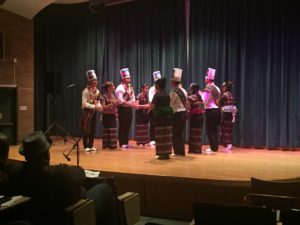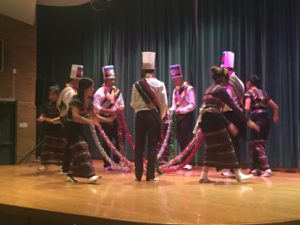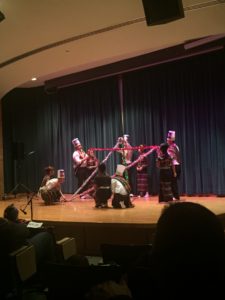Matupi is a town located in Western Burma and is apart of the Chin state. Burma, unfortunately, is known for its highly abusive government. The abuse put forth includes and is not limited to torture, forced labor, religious repression, restricted movement, and sexual harassment. Given these horrible conditions, there are many refugees who leave Burma in search of a better life, even though leaving can be extremely dangerous and expensive. Tens of thousands of refugees travel to neighboring countries, such as India and Malaysia. Some refugees then travel from India, Malaysia, even Thailand, here to the United States.
The people of the Chin state have a strong cultural background, one that they certainly do not lose when they leave Burma. Some important aspects of Chin culture are:
- The naming of a child is an honor given to the grandparents. The child is given just one name, as opposed to a first, middle and last name. The name can represent an accomplishment of the grandparents or a wish they they have for the child’s future.
- A gentle handshake is a common greeting.
- 4-6 children in a family are common
- It is disrespectful to point your feet at someone
Aside from these is another very important aspect of Chin culture: dance. I had the pleasure of speaking with Jacob Ngawi, a refugee from Matupi. He taught me a bit about the dance traditions that take place in his culture. Jacob said that traditional dances among the Chin state differ by the different cities. He told me that in his city, Matupi, dancing is something passed down from generation to generation. Once you learn, it is your responsibility to pass it on to the next generation. It is just something that everybody does. He taught me about one popular dance in particular; the Star Dance. Any 5 men and 5 women that know how can come together to do this dance. There is no set groups of dancers, since everyone participates. This dance is commonly performed at Chin National Day which is every year on February 20th.
Jacob Ngawi, now 22, began dancing at the age of 15. He learned the same way as everyone else did; from the generation before him. A year after he began dancing, when he was 16 years old, he had to leave his home and come to the United States. He told me that his journey was scary. When he arrived in the United States safely, he settled here in Syracuse, New York. He lives with many other Matupi refugees. Jacob estimated that there are about 500 Matupi refugees that reside in Syracuse today. He said that even in Syracuse, he and his fellow Matupi refugees still take pride in their cultural dances. Now that he has been dancing for quite a few years, he is taking on the responsibility of teaching the younger generation how to participate in their cultural dances. One thing Jacob said he enjoyed about America was our education system. He told me that it took him about 5 years to learn English, and he actually just graduated this past May. And of course, Jacob said he loves Syracuse’s snow! He did admit, however, that there are aspects of American Culture that he does not particularly like. One thing Jacob looks forward to is going to Refugee Day every year with the other Matupi refugees. It is a wonderful opportunity for Chin refugees all over the United States to come together, perform their dances, and celebrate their culture.



